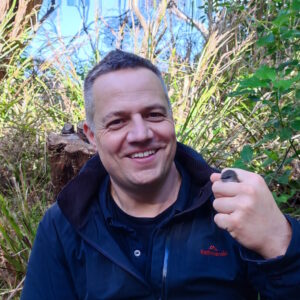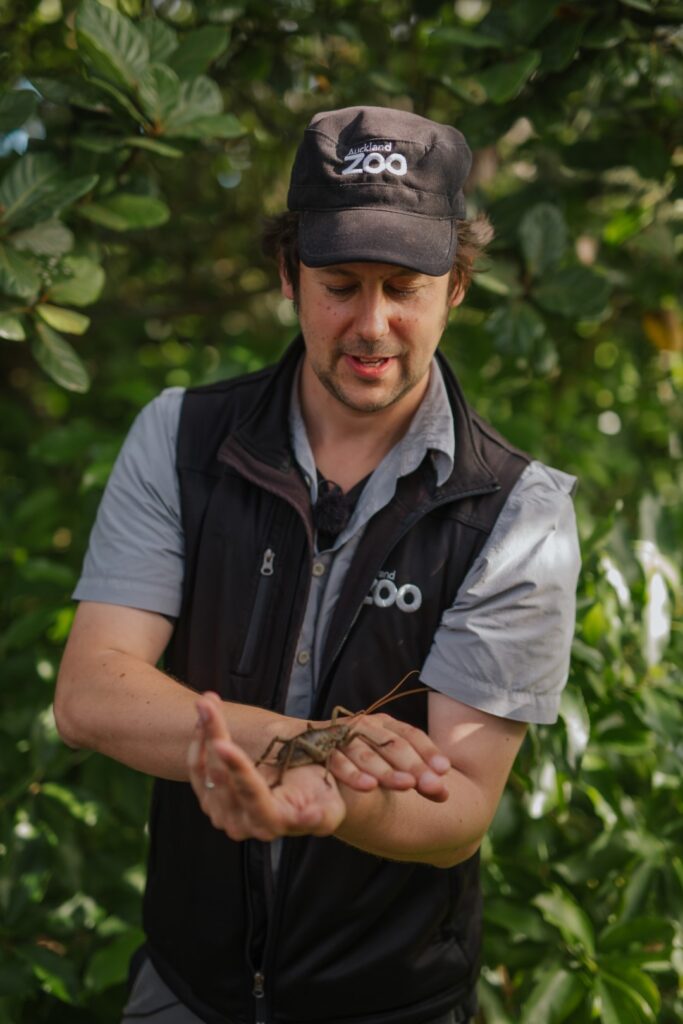
General Manager
We are delighted to present Don McFarlane, from Auckland Zoo, as our guest speaker following this year’s AGM on Sunday 29th October (2pm – 4pm, at Russell Bowling Club), where he will be sharing the story of the zoo’s wētāpunga breeding adventures.
If you would like to attend the presentation, please email info@projectislandsong.co.nz to RSVP and book your place. Space is limited and first priority is given to Project Island Song members, though non-members are also welcome to attend.
Auckland Zoo’s wētāpunga breed-for-release programme began in 2012 and has become one of the most successful projects for the zoo to date. So far over 7,000 wētāpunga have been released on 8 islands over 8 years.
The most recent releases to Ipipiri had particular significance as it is here in a ‘small low wood behind Paihia’ in 1839 that New Zealand’s earliest ‘land animal’ specimen was collected and preserved, a wētāpunga by William Colenso, the last documented mainland specimen (now at Auckland Museum).
It’s difficult therefore not to have experienced a ‘home-coming’ feeling amongst those assembled from Project Island Song & Te Rāwhiti hapū who came together days before Christmas 2020 to release the first zoo-bred wētāpunga onto Urupukapuka, Moturua & Motuarohia islands. The commitment by Auckland Zoo to support island restoration projects such as this with wētāpunga has been particularly rewarding and served not only to strengthen the species’ survival prospects and enhance ecosystems but help raise the importance of invertebrate conservation generally.
This presentation looks back on what has been achieved so far and celebrates the relationships struck along the way with likeminded individuals and groups. The passion and commitment found here gives all involved a confidence and hope in ongoing and future conservation partnerships.
Don McFarlane is curator of ectotherms at Auckland Zoo and has worked in nature conservation for 20 years. His career began at London Zoo working to reintroduce critically endangered Partula snails to islands in French Polynesia.
His undergraduate research, however, involved studying the gut parasites of Tawhiti Rahi wētā at London Zoo where he developed an enduring passion for all things wētā and Aotearoa.
The opportunity to move to New Zealand in 2014 and work to conserve the wētāpunga with Auckland Zoo was seen as a dream come true and he leapt at it.
The last 10 years has involved work on a multitude of other species in peril from Archey’s frogs, black mudfish, and west-coast skinks to the Mokohinau stag beetle whose last foothold on the planet is a living room-sized rock in the sea.
